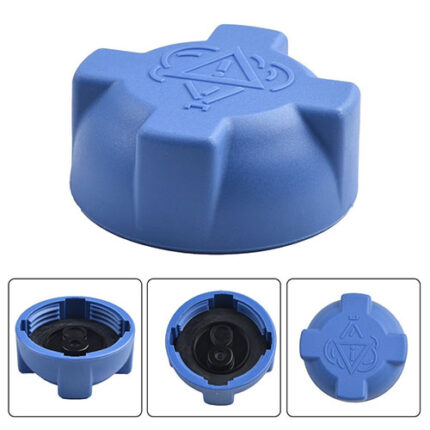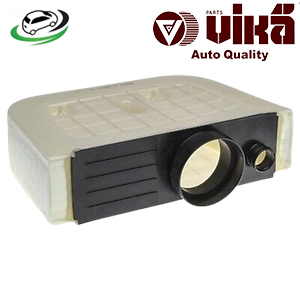-8%
Get Engine Air Filter Audi Q7 2.0L / Audi Q7 3.0L V6 4M0133843C
The engine air filter is a critical component in the functioning of any internal combustion engine, serving as the first line of defense against harmful particles that could otherwise enter the engine and cause damage. Despite its relatively simple design, the air filter plays a vital role in ensuring that the engine runs efficiently, maintains optimal performance, and lasts as long as possible. This comprehensive guide will explore the purpose, types, benefits, maintenance, and impact of a worn or dirty engine air filter, all within the scope of 1000 words.
Purpose of the Engine Air Filter
The primary function of the engine air filter is to clean the air entering the engine. The internal combustion process relies on a precise mixture of air and fuel, with the air being drawn from the environment. This air can contain various contaminants, such as dust, dirt, pollen, sand, and other debris. If these particles were allowed to enter the engine unfiltered, they could cause significant damage by wearing down engine components, clogging the fuel injectors, and reducing overall engine efficiency.
The air filter prevents these particles from entering the engine while allowing enough clean air to pass through, ensuring the engine operates efficiently. By maintaining a clean air supply, the filter also helps optimize the air-fuel mixture, which is crucial for combustion and, ultimately, the vehicle’s performance.
Types of Engine Air Filters
There are several types of engine air filters, each with its own advantages and disadvantages. The most common types include:
- Paper Air Filters:
- Construction: Made from pleated paper or a cellulose-based material, these filters are designed to capture small particles while allowing air to flow through.
- Advantages: They are inexpensive, widely available, and easy to replace. Paper filters provide good filtration and are suitable for most driving conditions.
- Disadvantages: Paper filters have a limited lifespan and must be replaced regularly. They are not reusable, making them less environmentally friendly.
- Foam Air Filters:
- Construction: Made from polyurethane foam, these filters are often oil-coated to enhance their ability to trap particles.
- Advantages: Foam filters are durable, reusable, and provide excellent filtration in dusty or off-road conditions. They can be cleaned and re-oiled multiple times.
- Disadvantages: Foam filters require regular maintenance, including cleaning and re-oiling. If not properly maintained, they can become less effective.
- Cotton Gauze Air Filters (Oiled):
- Construction: These filters use multiple layers of cotton gauze material, often coated with a special oil to trap particles.
- Advantages: Cotton gauze filters are reusable and offer superior airflow compared to paper filters. They are popular among performance enthusiasts for their ability to increase horsepower and engine efficiency.
- Disadvantages: Like foam filters, they require regular cleaning and re-oiling. If over-oiled, they can cause issues with the vehicle’s mass airflow sensor.
- Synthetic Air Filters:
- Construction: Made from synthetic materials such as polyester or fiberglass, these filters provide excellent filtration and airflow.
- Advantages: Synthetic filters are washable, reusable, and provide long-lasting performance. They offer good filtration even in harsh conditions and are less prone to degradation over time.
- Disadvantages: They tend to be more expensive than paper or foam filters.
Benefits of a Clean Engine Air Filter
A clean engine air filter provides numerous benefits, contributing to the overall performance and longevity of the engine:
- Improved Engine Performance:
- Enhanced Airflow: A clean air filter allows for optimal airflow into the engine, ensuring the correct air-fuel mixture. This results in smoother engine operation, quicker throttle response, and better acceleration.
- Increased Horsepower: With better airflow, the engine can produce more power, leading to increased horsepower, particularly noticeable in high-performance vehicles.
- Better Fuel Efficiency:
- Optimal Combustion: A clean air filter helps maintain the ideal air-fuel mixture, which is essential for efficient combustion. This can lead to improved fuel economy, as the engine does not need to burn excess fuel to compensate for a restricted air supply.
- Extended Engine Life:
- Protection from Contaminants: By preventing dirt, dust, and other debris from entering the engine, a clean air filter reduces the risk of engine wear and tear. This protection helps prolong the engine’s life, reducing the likelihood of costly repairs.
- Reduced Emissions:
- Efficient Fuel Combustion: A clean air filter supports complete combustion, which reduces the production of harmful emissions. This is not only better for the environment but also helps the vehicle meet emission standards.
- Prevention of Engine Damage:
- Avoiding Contaminant Buildup: Without a proper filter, contaminants could accumulate in the engine, leading to internal damage, clogged fuel injectors, and even complete engine failure. A clean air filter prevents these issues, ensuring the engine runs smoothly.
Maintenance and Replacement
Regular maintenance and timely replacement of the engine air filter are crucial for ensuring it performs its function effectively. Here’s how to maintain and replace an engine air filter:
- Regular Inspection:
- Check for Dirt and Debris: Periodically inspect the air filter for visible dirt, debris, or damage. In general, it’s a good idea to check the air filter every 12,000 to 15,000 miles, though this interval may vary depending on driving conditions.
- Assess Filter Condition: If the filter appears dirty or clogged, it’s time to clean or replace it. A visual inspection can usually tell you if the filter is past its prime.
- Cleaning or Replacing the Filter:
- Paper Filters: These filters should be replaced with a new one once they become dirty. Paper filters are not designed to be cleaned and reused.
- Foam and Cotton Gauze Filters: These can be cleaned and re-oiled according to the manufacturer’s instructions. Cleaning usually involves rinsing the filter with a cleaning solution, allowing it to dry, and then reapplying oil.
- Synthetic Filters: These can be washed and reused, but it’s essential to follow the manufacturer’s guidelines to avoid damaging the filter.
- Replacement Interval:
- Follow Manufacturer’s Recommendations: Most vehicle manufacturers recommend replacing the air filter every 12,000 to 15,000 miles. However, if you drive in dusty or polluted environments, you may need to replace it more frequently.
- Consider Driving Conditions: If you drive primarily in urban areas with high levels of air pollution or in off-road conditions with a lot of dust, the air filter may need to be replaced more often.
Impact of a Worn or Dirty Air Filter
Failing to replace a worn or dirty air filter can lead to several negative consequences:
- Reduced Engine Performance:
- Restricted Airflow: A clogged filter restricts airflow into the engine, leading to a poor air-fuel mixture. This can cause the engine to run rich (too much fuel, not enough air), resulting in sluggish performance, reduced acceleration, and poor throttle response.
- Increased Fuel Consumption:
- Poor Combustion: With insufficient air, the engine compensates by burning more fuel, leading to decreased fuel efficiency and higher fuel costs over time.
- Higher Emissions:
- Incomplete Combustion: A dirty air filter can cause incomplete combustion, leading to higher emissions of pollutants such as carbon monoxide and hydrocarbons. This can result in failing emissions tests and contributing to environmental pollution.
- Potential Engine Damage:
- Contaminants Entering the Engine: A degraded filter may allow dirt and debris to enter the engine, causing internal wear, damaging components, and potentially leading to engine failure.
- Possible Check Engine Light Activation:
- Sensor Issues: A severely clogged air filter can affect the readings from sensors such as the mass airflow sensor, potentially triggering the check engine light and requiring diagnostic work to resolve.
Follow us on Facebook for more parts.



